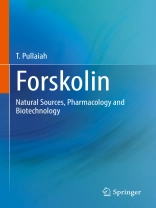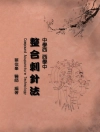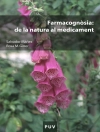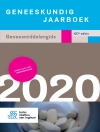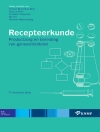This monograph compiles updated information about forskolin, a labdane diterpene that is produced by the Coleus plant. Forskolin has a large number of practical uses and the book delves into the various aspects of this chemical. It includes topics such as the botanical source of forskolin and the cultivation of Coleus forskohlii, source. It also covers the biosynthetic pathways in natural sources and also through different biotechnological applications. Chapters include the potential and products in the Forskolin market. The book also covers the methods for enhanced production of forskolin from natural sources and through tissue culture methods for improvement of the plant for higher content of forskolin. It discusses the role of endophytes in the production of forskolin.
The book is useful for students and researchers in the field of botany, pharmacology and biochemistry. It also serves scientists in various pharmaceutical industries.
表中的内容
Chapter 1.
Coleus forskohlii – A multipurpose medicinal plant.-
Chapter 2. Botany of
Coleus forskohlii.-
Chapter 3. Traditional Medicinal Uses and Pharmacognosy of
Coleus forskohlii.-
Chapter 4. Chemistry of
Coleus forskohlii Briq..-
Chapter 5. Pharmacology of
Coleus forskohlii and Forskolin.-
Chapter 6. Micropropagation of
Coleus forskohlii .-
Chapter 7. In Vitro Production of Forskolin.-
Chapter 8.
Assessment of
Coleus forskohlii Genetic Diversity Using Molecular Markers.-
Chapter 9. Endophytes for the enhanced growth of
Coleus forskohlii and enhanced production of Forskolin.-
Chapter 10. Propagation Methods of
Coleus forskohlii.-
Chapter 11. Success stories and Trade and Commerce of
Coleus forskohlii.
关于作者
Dr. T. Pullaiah is a former Professor at the Department of Botany at Sri Krishnadevaraya University in Andhra Pradesh, India, where he has taught for more than 35 years. He has held several positions at the university. He was President of Indian Botanical Society (2014), President of the Indian Association for Angiosperm Taxonomy (2013) and Fellow of Andhra Pradesh Akademi of Sciences. Under his guidance 54 students obtained their doctoral degrees. He has authored 70 books, edited 40 books, and published over 340 research papers, including reviews and book chapters. He was also a member of Species Survival Commission of the International Union for Conservation of Nature (IUCN). Professor Pullaiah received his Ph D from Andhra University, India, attended Moscow State University, Russia, and worked as Post-Doctoral Fellow during 1976-1978.
